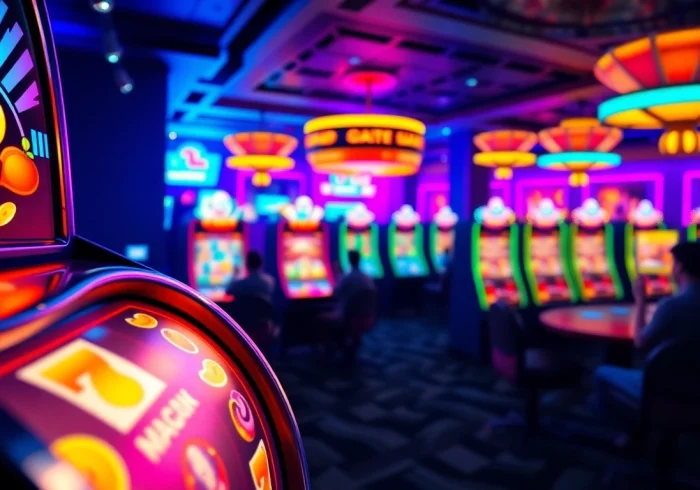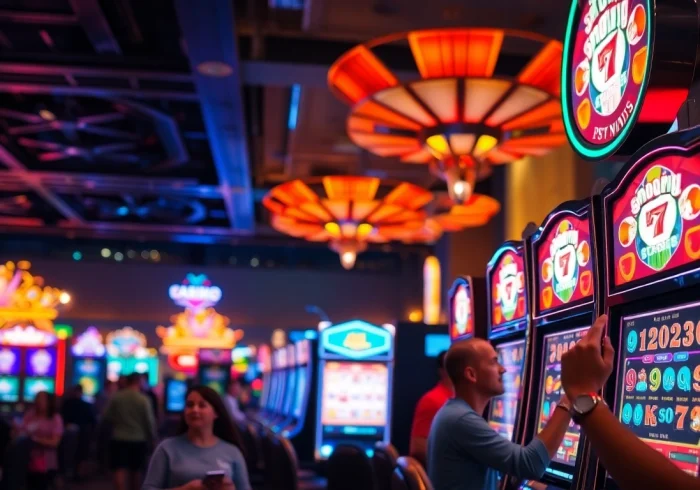What is a Licensed Casino?
Definition of Licensed Casino
A licensed casino is an establishment that has been granted permission by a recognized regulatory body to operate in the gambling sector. This authority ensures that the casino adheres to established laws and regulations designed to protect players, promote fair play, and maintain the integrity of gaming operations. The licensing process involves comprehensive background checks, financial audits, and ongoing monitoring to ensure compliance with gaming regulations.
How Licensing Works
The licensing process for casinos varies widely by jurisdiction but generally involves several critical steps. Initially, the casino operator must submit an application that outlines the business plan, financial standing, ownership structure, and detailed operational procedures. Regulatory authorities then conduct thorough investigations into the applicants, which may include criminal background checks, financial history assessments, and the evaluation of gaming technologies (e.g., random number generators used in slot machines).
Once a casino is approved for licensing, it must pay a fee and meet ongoing requirements, which can include regular audits, compliance checks, and continued reporting of financial activities. This rigorous process not only serves to protect consumers but also helps maintain public confidence in the gambling industry.
Importance of Licensing in Gambling
Licensing is fundamentally vital to the gambling industry for many reasons. First and foremost, it ensures player safety by mandating that casinos follow ethical practices and uphold player rights. A Licensed Casino must implement responsible gambling measures, such as self-exclusion programs and transparent handling of player funds.
Moreover, licensing promotes fair play by enforcing rules that casinos must follow regarding odds and payout percentages. It acts as a deterrent against fraudulent activity and ensures that games are run fairly, thus fostering a trustworthy gambling environment.
Benefits of Playing at a Licensed Casino
Player Protection and Security
One of the most significant advantages of choosing a licensed casino is the enhanced security and protection it offers players. These establishments must adhere to strict laws and regulations designed to protect sensitive personal and financial information. Licensed casinos typically use advanced encryption technologies and firewalls to safeguard player data, significantly reducing the risk of data breaches.
In addition to data security, licensed casinos often provide clear channels for player complaints and disputes. Should issues arise, players have a formal process for addressing their concerns, often mediated by the licensing authority. This provides a level of assurance that players can safely engage in gambling activities without fear of being exploited or defrauded.
Fair Play and Regulatory Compliance
Another key benefit of playing at a licensed casino is the guarantee of fair play. Regulatory bodies impose rules that require casinos to follow strict guidelines regarding the conduct of games. This includes regulations surrounding the fairness of gameplay, transparency in odds and payouts, and the operation of random number generators for digital and online slot machines.
Independent auditors often review licensed casinos to ensure compliance with these standards. This oversight helps ensure that the games offered are not rigged and that players have a fair chance of winning. In essence, licensing cultivates a sense of trust that is not typically available from unlicensed operations, which may lack transparency or accountability.
Access to Customer Support and Resources
Licensed casinos typically offer increased access to customer support and resources for players. This can include 24/7 support through multiple channels—such as live chat, email, or phone—ensuring that players can find assistance when needed. Additionally, many licensed casinos provide detailed resources on responsible gambling practices, which can help prevent gambling-related harm.
Resources provided by licensed casinos may also extend to educational materials about understanding the games, odds, and strategies for responsible betting. By promoting informed gaming, licensed operators contribute to a safer and more enjoyable gambling experience.
How to Identify a Licensed Casino
Checking for Licensing Authority
Identifying a licensed casino starts with checking whether the casino is regulated by a recognized licensing authority. Each jurisdiction has its own regulatory body—like the United Kingdom Gambling Commission, Malta Gaming Authority, or state gaming commissions in the United States—that issues licenses. These bodies maintain public records of licensed operators, allowing players to confirm a casino’s legitimacy.
It is essential to look for casinos that display their licensing information prominently, often found in the footer of their website. This typically includes the license number and the jurisdiction that granted the license. A reputable casino will also have its licensing authority logo or badge displayed on its site.
Verifying Casino Credentials
After finding a casino’s licensing information, take the next step by verifying those credentials. Visit the regulatory authority’s official website and look for a searchable database of licensed operators. This allows players to confirm the validity of the casino’s license and ensure it has not been suspended or revoked.
Additionally, look for information on the casino’s compliance with industry standards. Many gaming authorities publish reports or statements regarding their licensees’ practices, including any infractions or sanctions that may have been imposed.
Reading Reviews and Player Feedback
Another effective way to determine if a casino is licensed and trustworthy is to read reviews from other players. Various online forums and review sites provide insights into user experiences, detailing everything from payment speed and customer service to game quality. Consistent positive feedback can be a good indicator of a reputable operation.
Conversely, excessive negative reviews about unresolved issues or customer service problems could raise red flags about the casino’s reliability. Always consider the overall sentiment and the number of reviews to get a balanced perspective.
Top Licensed Casino Regulations Worldwide
United States Licensing Bodies
The United States features a diverse landscape of gaming regulations, with licensing authorities varying by state. For instance, the New Jersey Division of Gaming Enforcement oversees licensing and regulation for online and land-based casinos in New Jersey, ensuring they operate within Constitutionally mandated regulations. Similarly, the Nevada Gaming Control Board governs the traditional gambling scene in Las Vegas.
The process and requirements can differ significantly from state to state. In most cases, casinos must demonstrate financial stability and integrity to gain licensure. Many states now include provisions for online gambling as well, adapting to modern gaming trends and consumer demands.
International Licensing Competencies
Outside the United States, several jurisdictions are recognized for their focus on regulated gambling, including Malta, the United Kingdom, and Gibraltar. Each of these jurisdictions has developed a rigorous framework to ensure compliance and consumer protection in online gaming. For example, Malta’s regulatory authority emphasizes player protection and fair play as part of its licensing criteria, which has become a benchmark worldwide.
This global perspective aids players in identifying casinos that follow international standards. Many international operators will hold multiple licenses across different countries, providing enhanced credibility and trustworthiness.
Overview of Licensing Standards
Licensing standards encompass various elements, including financial scrutiny, stringent operational guidelines, and player protections. They typically include requirements for regular financial audits, responsible gaming policies, and advertising standards designed to prevent misleading promotions. Regular inspections and ongoing monitoring ensure that casinos consistently meet these high standards throughout their operational lifespan.
Ultimately, these standards are established to uphold the integrity of gambling operations and consumer protection, contributing to a safer gaming environment across markets.
Future Trends in Licensed Casino Gaming
Emerging Technologies in Casinos
The future of licensed casinos may be significantly influenced by emerging technologies. Innovations such as blockchain technology are beginning to impact online gaming by providing transparent transaction records and provable fairness in games. Additionally, the integration of artificial intelligence can enhance customer support and personalize the gaming experience. Virtual and augmented reality technologies are also expected to revolutionize player engagement, offering immersive experiences that replicate physical casinos without the need to leave home.
These advancements promise to make gambling more interactive and appealing, reshaping how customers engage with licensed casinos while also posing new regulatory challenges for licensing authorities to address.
Regulatory Changes on the Horizon
As the gaming landscape continues to evolve, regulatory frameworks are also likely to undergo transformations. With the swift rise of online gambling, authorities may adapt existing regulations or introduce new ones focused on digital platforms. This could involve enhanced frameworks for data protection, user privacy, and operational transparency.
Moreover, potential national standards on responsible gaming could also emerge due to increasing public awareness about gambling addiction. Regulatory agencies are more than ever recognizing the importance of sustainability within the industry while ensuring that player protection remains a top priority.
The Future of Online Licensing
The trajectory of online casino licensing is also poised for growth. More jurisdictions are likely to open their markets to online casinos, a trend encouraged by the demand for legal and regulated digital gambling options. As a result, players will have access to a broader range of reputable operators, fostering competition that encourages higher standards and innovative services in the online space.
Moreover, the concept of harmonization among licensing authorities—creating a universal standard for online gaming—may become a focal point in the coming years, simplifying compliance for operators and assuring customers of consistent protections across different platforms.



